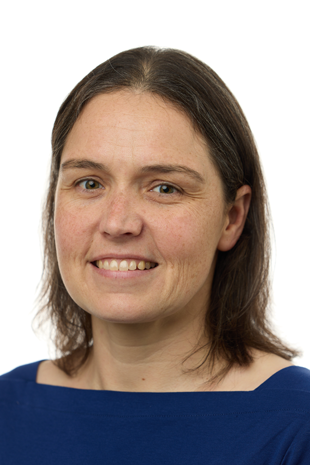
Sargent welcomed health services researcher Emily Evans to its faculty in 2022. Evans, an assistant professor of physical therapy with almost two decades of experience working with individuals with neurologic diagnoses in community-based rehabilitation settings, believes that medical facilities should continuously critically examine the care they provide so they are always making improvements.
During her postdoctoral fellowship at Brown University School of Public Health, Evans studied administrative data at post-acute care settings, such as nursing and inpatient rehabilitation facilities, to determine how the care they offered impacted the outcomes of patients with traumatic brain injuries. “We used data that is collected from these large administrative databases, which can include things like Medicare claims and mandated functional assessments, and looked at what we could learn from the care that we provide to inform and improve future care,” she says.
At BU, Evans says she is using her experience with administrative data and in clinical practice to tie her research to a model of care called Learning Health Systems (LHS), which calls for healthcare providers and health systems to constantly evaluate what they do in order to improve their services. “The concept came from the Institute of Medicine as a way to improve the quality and efficiency of healthcare, and Charles Friedman [the chair of Learning Health Sciences] at the University of Michigan has developed a really clear conceptual model [for it]. The idea is that you start with a problem that multiple communities of interest within a health system want to solve, collect data about what is currently done, learn from that data, then try to use what is learned to change the way that care is provided to address the problem.”
Over the next year, Evans will work with Spaulding Rehabilitation Hospital as a Learning Health System Scholar through the Learning Health Systems Rehabilitation Research Network. The goal of the LHS scholar program is to connect researchers with health systems and develop a collaborative relationship and plans to address the health system’s priority areas for improvement.
“The wonderful and challenging thing about Learning Health Systems work is that it really is a collaboration between researchers, health systems, providers, and patients,” Evans says. “I’m in the process of developing relationships with [local] health providers and health systems and look forward to working together with them.”